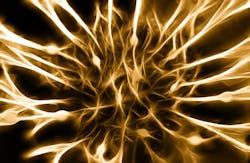Scientists investigate protein behind antibody development, consider potential use
Scientists at the La Jolla Institute for Immunology (LJI) have discovered a potential new way to better fight a range of infectious diseases, cancers and even autoimmune diseases.
The new study, published in Nature Immunology, shows how a protein works as a “master regulator” in the immune system. The research is an important step toward designing vaccines and therapies that can “switch on” the immune cells that help produce disease-fighting antibodies. Scientists may also be able to “switch off” these cells to counteract immune cells dysfunction in autoimmune diseases.
“This cell type (Tfh cells) sometimes does bad things in autoimmune diseases—particularly autoantibody diseases like lupus, rheumatoid arthritis and Sjogren’s syndrome,” says LJI investigator Shane Crotty, Ph.D., who led the new research. “So, hopefully, our fundamental knowledge about the circuitry of this cell can help us understand how to turn it off in autoimmune diseases.”
Crotty’s laboratory studies key immune system players, such as different kinds of helper T cells. In 2009, his laboratory published work showing that a protein called Bcl6 controls how helper T cells differentiate to do different jobs in the body. They found that Bcl6 prompts helper T cells to become T follicular helper (Tfh) cells, which work with B cells to produce powerful antibodies. This was an important breakthrough, but Crotty’s lab still wanted to know: What exactly was Bcl6 doing to Tfh cells? Answering this question could open the door to controlling immune responses.
“There is great interest in the use of Tfh-cell-associated biology for enhancement of vaccines,” says Crotty. “There is also great interest in targeting Tfh cell-associated biology for therapeutic interventions in human autoimmune diseases, allergies, atherosclerosis, organ transplants and cancer.”
For the new study, Crotty led a complex effort to test competing theories for how Bcl6 controls Tfh. The researchers used mouse models and a range of genetic sequencing tools to determine that Tfh cells actually need Bcl6 to even exist.
Looking closer, the researchers found that Bcl6 acts mainly as a repressor in helper T cells, meaning that it blocks the expression of other proteins in these cells through a series of genetic switches, which they mapped. The new research gives scientists a guide to how they could potentially switch Bcl6 on or off to control immune responses, says Crotty. “Increasing emphasis will surely now be placed on how to apply that knowledge to Tfh-related therapeutics,” he adds.

